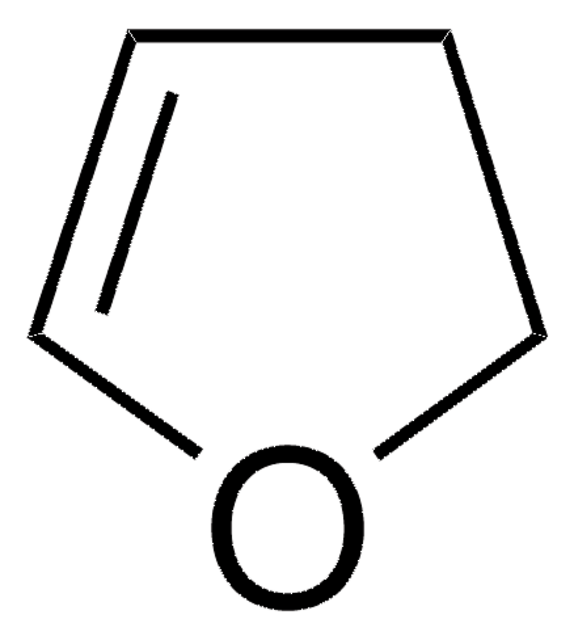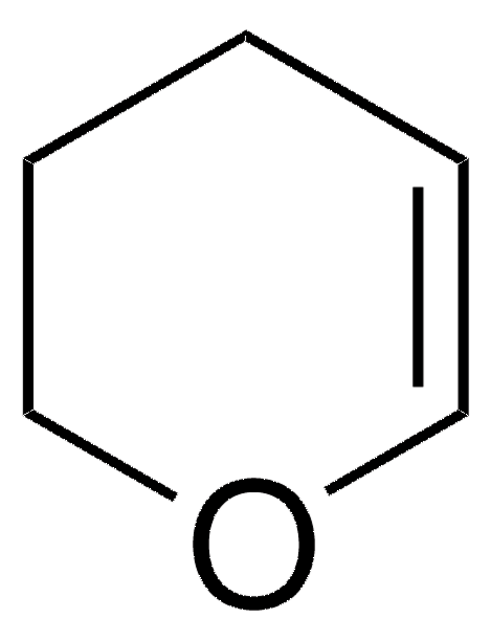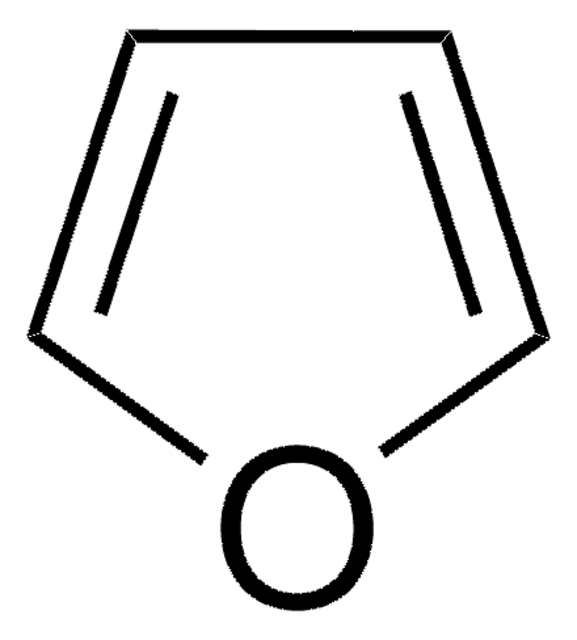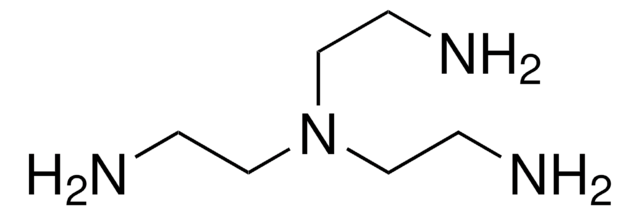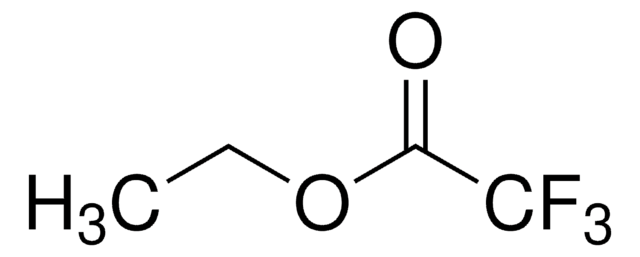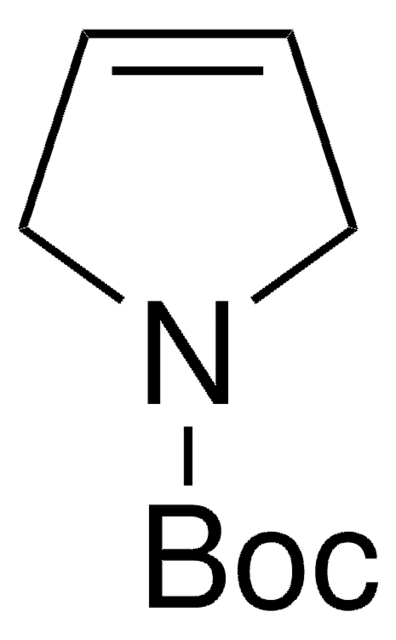All Photos(2)
About This Item
Empirical Formula (Hill Notation):
C4H6O
CAS Number:
Molecular Weight:
70.09
Beilstein:
103174
EC Number:
MDL number:
UNSPSC Code:
12352100
PubChem Substance ID:
NACRES:
NA.22
Recommended Products
Quality Level
Assay
97%
form
liquid
refractive index
n20/D 1.431 (lit.)
bp
66-67 °C (lit.)
density
0.927 g/mL at 25 °C (lit.)
SMILES string
C1OCC=C1
InChI
1S/C4H6O/c1-2-4-5-3-1/h1-2H,3-4H2
InChI key
ARGCQEVBJHPOGB-UHFFFAOYSA-N
Looking for similar products? Visit Product Comparison Guide
General description
Adsorption and thermal chemistry of 2,5-dihydrofuran on Pd (111) has been studied by high-resolution electron energy loss spectroscopy and temperature-programmed desorption. Free jet millimetre wave spectrum of the 2,5-dihydrofuran-argon molecular complex has been investigated in the frequency range 60-78GHz.
Signal Word
Danger
Hazard Statements
Precautionary Statements
Hazard Classifications
Flam. Liq. 2
Supplementary Hazards
Storage Class Code
3 - Flammable liquids
WGK
WGK 3
Flash Point(F)
33.8 °F - closed cup
Flash Point(C)
1 °C - closed cup
Personal Protective Equipment
dust mask type N95 (US), Eyeshields, Gloves
Choose from one of the most recent versions:
Already Own This Product?
Find documentation for the products that you have recently purchased in the Document Library.
Customers Also Viewed
Free jet absorption millimetre wave spectrum of the 2, 5-dihydrofuran-argon adduct.
CAMINATI BW, et al.
Molecular Physics, 91(4), 663-668 (1997)
Clay M Horiuchi et al.
Langmuir : the ACS journal of surfaces and colloids, 26(16), 13320-13332 (2010-08-11)
High-resolution electron energy loss spectroscopy (HREELS) and temperature-programmed desorption (TPD) were used to study the adsorption and thermal chemistry of 2,3-dihydrofuran (2,3-DHF) and 2,5-dihydrofuran (2,5-DHF) on Pd(111). The results, paired with earlier computational results, indicate that 2,3-DHF and 2,5-DHF both
Our team of scientists has experience in all areas of research including Life Science, Material Science, Chemical Synthesis, Chromatography, Analytical and many others.
Contact Technical Service